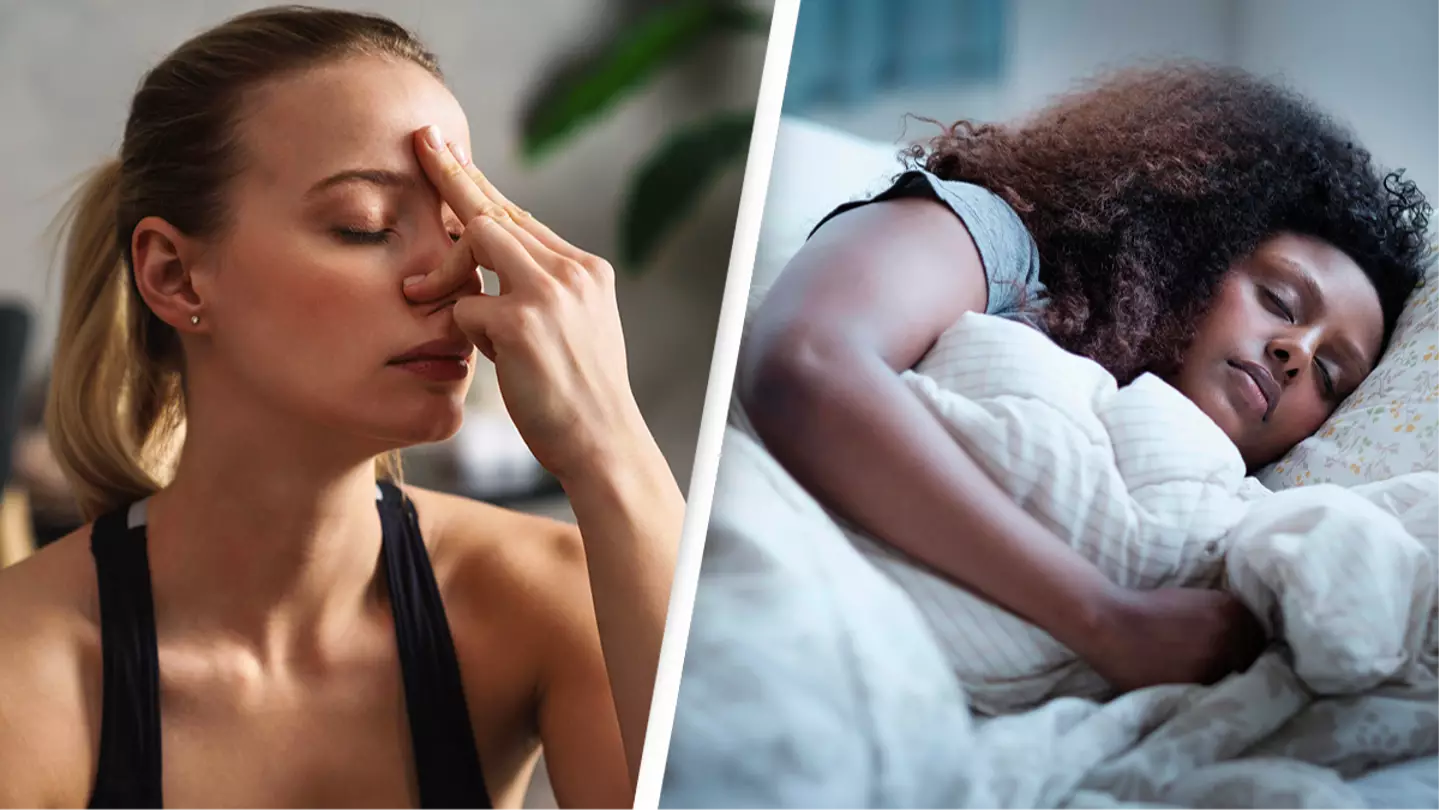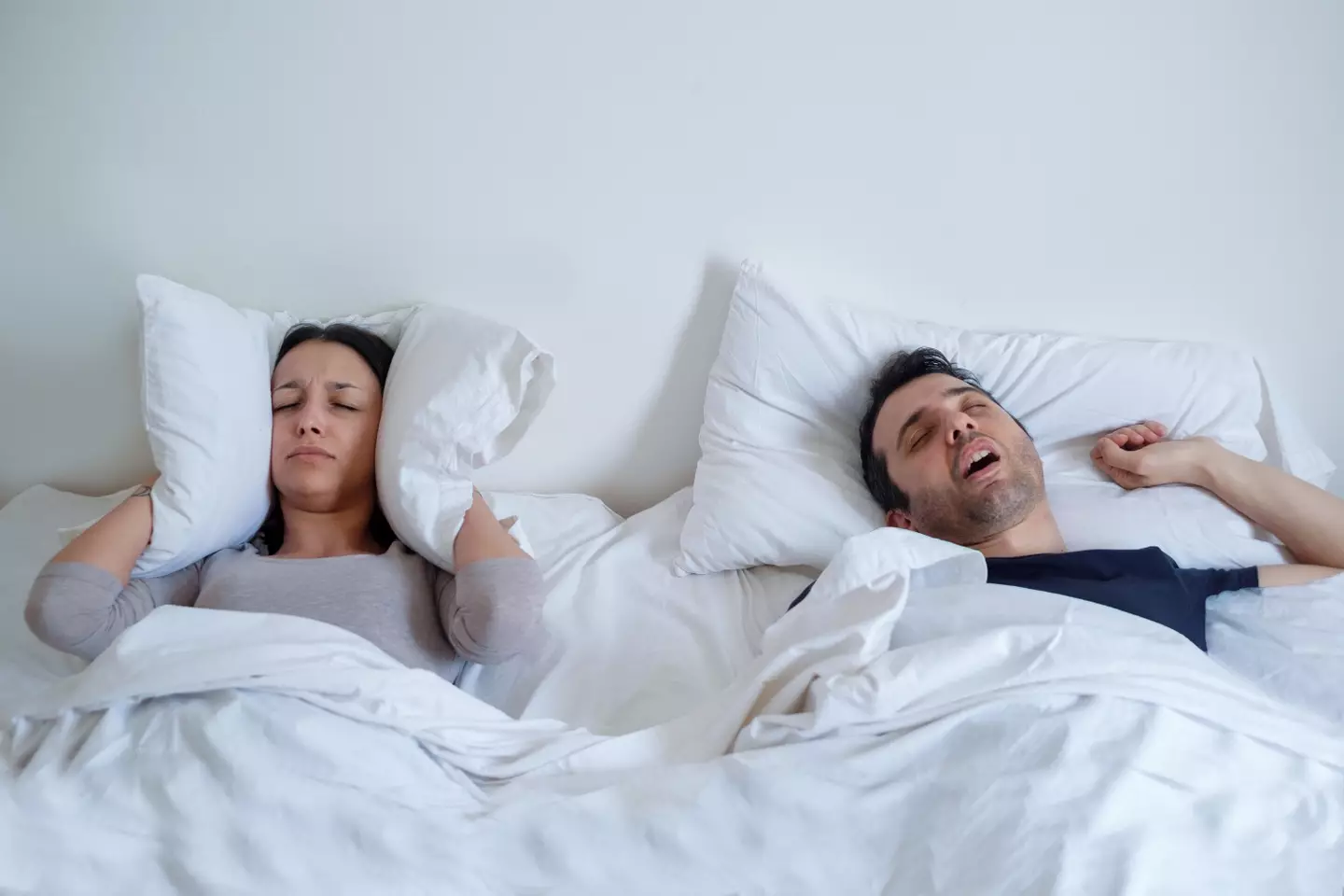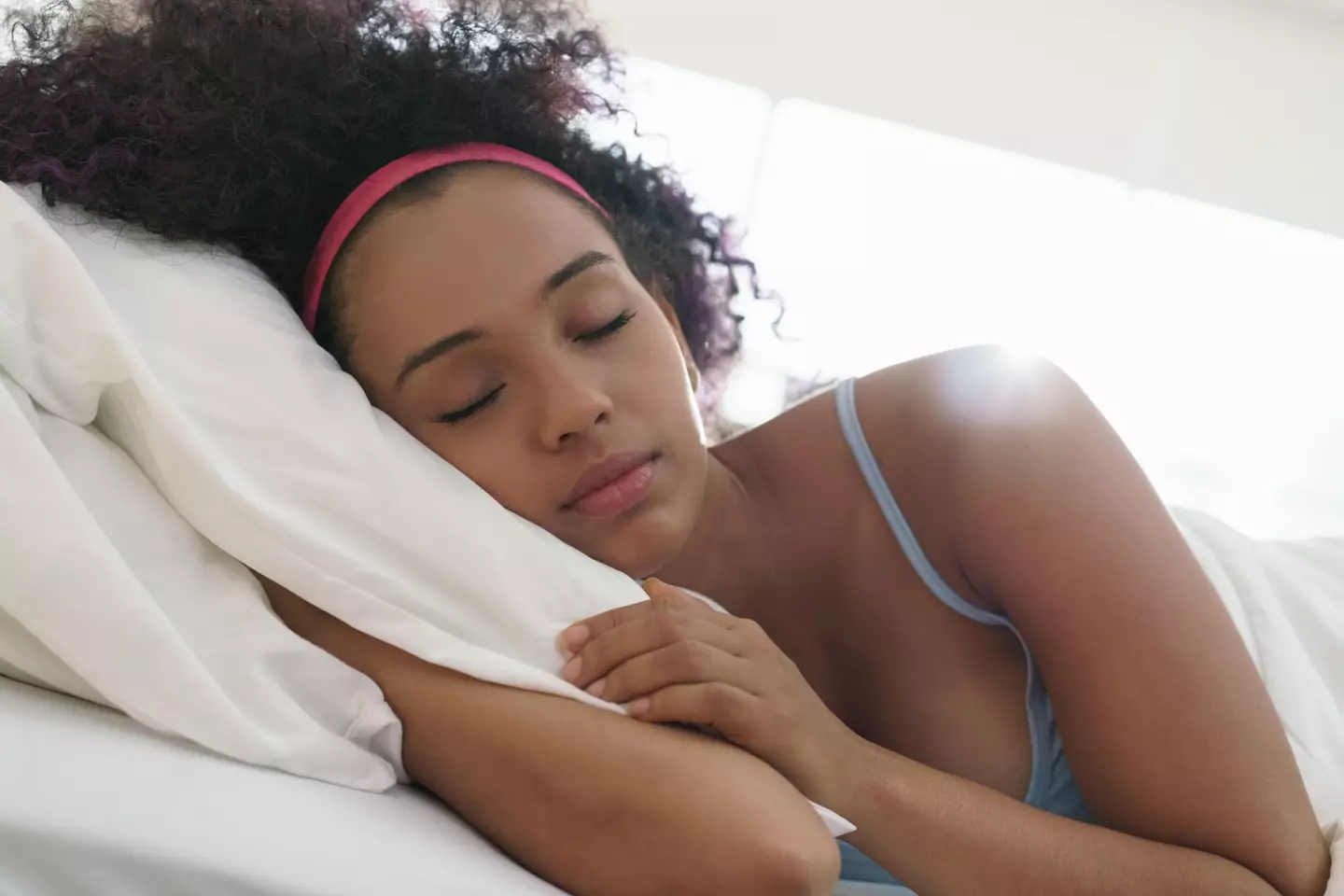
Doctors are raving about a simple technique that can help you fall asleep quicker, and weirdly, it doesn’t involve staring at the blinding light of your phone at 2:00am while scrolling through Instagram.
Anyone in search of a peaceful, stress-free slumber should consider the 4-7-8 technique.
The exercise was popularised by Dr. Andrew Weil, an integrative medicine specialist, but according to CNN, has roots in pranayama, a type of yogic practice involving breath regulation.

Advert
The relaxation exercise involves breathing in while counting to four, holding that breath for another seven counts, and exhaling over eight.
Speaking about the benefits of the 4-7-8 technique, Rebecca Robbins, an instructor in medicine at Harvard Medical School, told the outlet: “What a lot of sleep difficulties are all about is people who struggle to fall asleep because their mind is buzzing.”
Robbins, who is also an associate scientist in the division of sleep and circadian disorders at Brigham and Women’s Hospital in Boston, added: “But exercises like the 4-7-8 technique give you the opportunity to practice being at peace. And that’s exactly what we need to do before we go to bed.”
Joshua Tal, a New York state-based clinical psychologist, emphasised to CNN that the technique ‘doesn’t put you to sleep’, but rather ‘may reduce anxiety to increase the likelihood of falling asleep’.
Advert
As for performing the exercise, Robbin said it’s best to start by practising in a calm, quiet place. Start with your back straight as you inhale and exhale, then, once you’ve got the technique locked down, you can start practising it in bed.
As for Weil, he recommends ‘completely exhaling through your mouth, making a whooshing sound’ then ‘closing your mouth and quietly inhaling through your nose to a mental count of four’.

For the final three steps, Weil advises ‘holding your breath for a count of seven’ then ‘exhaling through your mouth, making a whooshing sound for a count of eight’ before ‘repeating the process three more times for a total of four breath cycles’.
Advert
Weil’s website adds: “If you have trouble holding your breath, speed the exercise up but keep the ratio (consistent) for the three phases.
“With practice you can slow it all down and get used to inhaling and exhaling more and more deeply.”
Explaining why we can sometimes feel anxious when bedtime rolls around, Dr. Raj Dasgupta, a clinical associate professor of medicine at the University of Southern California’s Keck School of Medicine, explained: “An active sympathetic nervous system [the system responsible for our fight-or-flight response] can cause a fast heart rate as well as rapid and shallow breathing.”
If you have a story you want to tell, send it to UNILAD via [email protected]